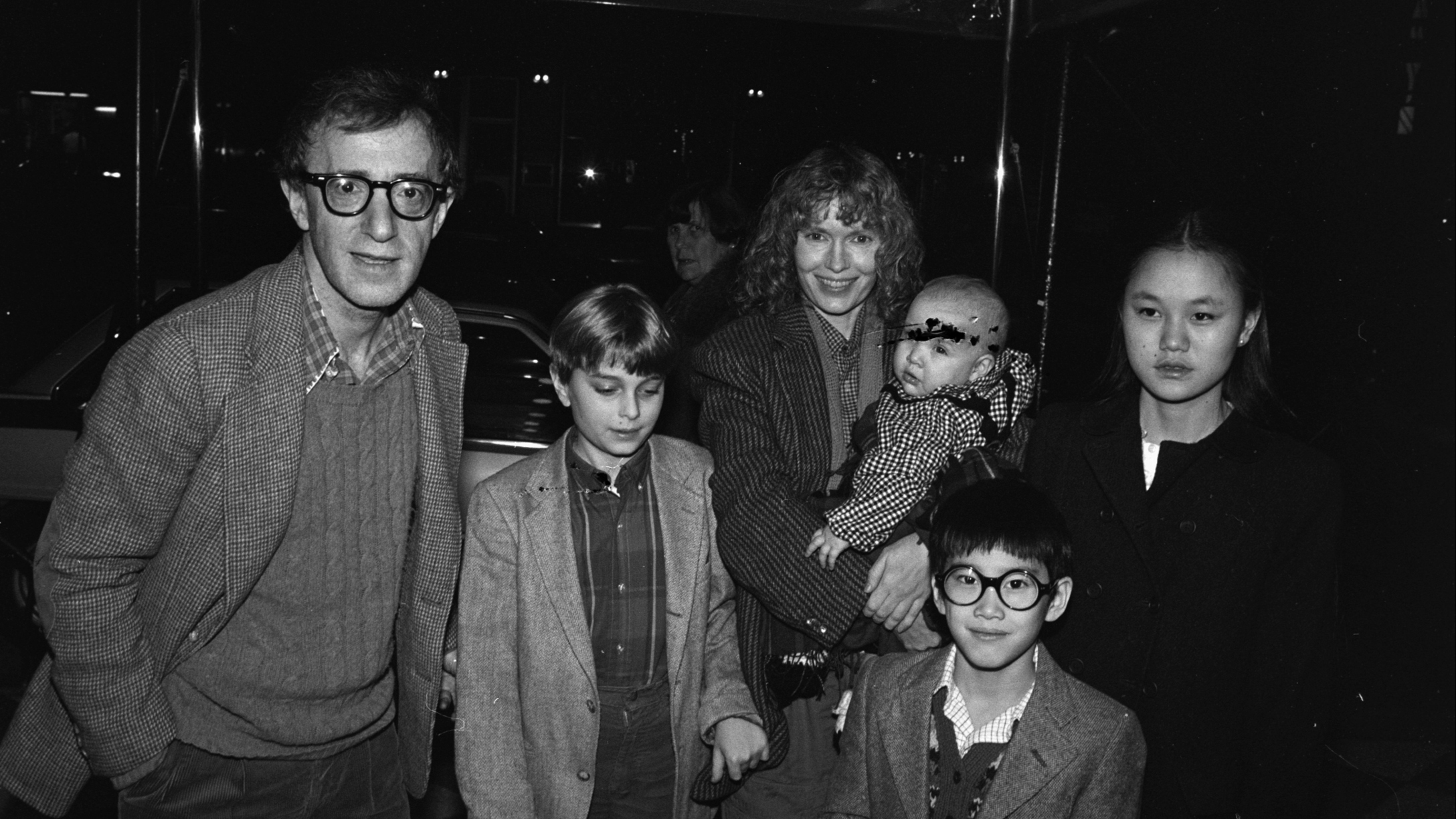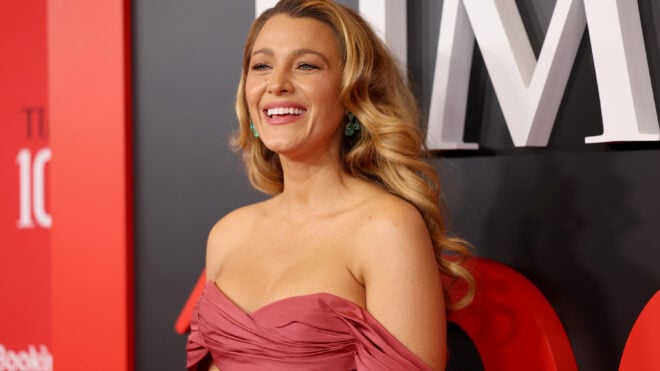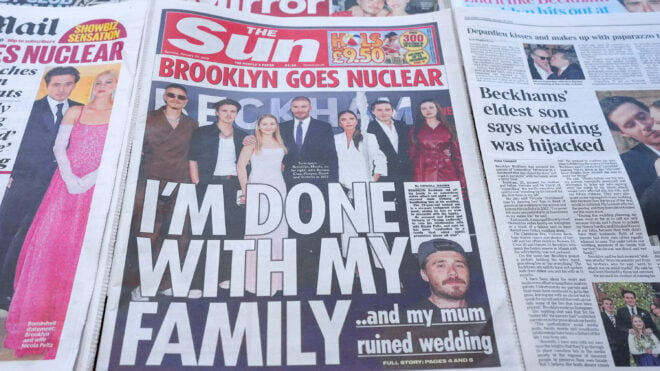
Moses was 2 years old when Mia Farrow adopted him in 1980. He joined Mia's growing family, which included the six children Mia shared with André Previn: Matthew, Sascha, Fletcher, Lark, Daisy, and Soon-Yi. Mia adopted her daughter Dylan five years later and gave birth to Satchel (who is known as Ronan now) a few years after that. In 1991, Mia's boyfriend, film director Woody Allen, adopted Moses and Dylan.
Mia would go on to adopt five more children after she and Woody broke up: Tam, Quincy, Frankie-Minh, Isaiah, and Thaddeus Wilk. Adoption is an important part of the Farrow family story, and it's central to a recent interview that Moses gave to The Guardian.
Moses has never given an interview to any newspaper before. Given the confusing and disorienting details of his family's past, it's not hard to understand why.
Mia Farrow and Woody Allen were never married and never lived together. The pair broke up in 1992, soon after Woody adopted Moses and Dylan. Mia discovered that Woody and her daughter Soon-Yi were engaged in their own affair, and Mia ended her relationship with Woody immediately. She also accused Woody of sexually abusing Dylan a few months later.
At the time, Woody and Soon-Yi's relationship was what grabbed the eyes and attention of the public and media. After all, though Woody reportedly never behaved as a stepfather to Soon-Yi in a traditional sense, it's difficult to argue that he was anything but a central figure in her teenage years. Mia and Woody began dating when Soon-Yi was 11, though she and Woody reportedly didn't begin their own relationship until Soon-Yi was 21 (though some publications believe she was only 19 when they began their sexual relationship).
In recent years, the public has begun eyeing Woody Allen's alleged abuse of Dylan more closely. Woody was twice the subject of an investigation into Mia's and Dylan's claims but never charged. Many have pointed out that the filmmaker often writes about older men who pursue sexual relationships with much younger women and girls.
Dylan's allegations also came after Woody filed for custody of Moses, Dylan, and Satchel. The exact timeline goes like this: Dylan told her mother on August 4, 1992 that her father had molested her. Woody filed for custody on August 13, and then he and Soon-Yi went public with their relationship on August 17. The Connecticut State Police announced they were launching an investigation following Dylan's accusation that same day.
Woody immediately launched into his own defense, arguing that Mia coached Dylan into making the accusation to get back at him for dating Soon-Yi. But Dylan herself maintained her story over the years, and as an adult she has written two powerful pieces about the abuse.
Dylan also appeared on CBS This Morning in 2018. She tearfully explained, "I loved my father. I respected him. He was my hero. And that doesn’t obviously take away from what he did. But it does make the betrayal and the hurt that much more intense."
Dylan also maintained the story she's been telling since she was 7. Her father "instructed me to lay down on my stomach and play with my brother's toy train that was set up. And he sat behind me in the doorway, and as I played with the toy train, I was sexually assaulted."
Dylan also said that the abuse wasn't a one-off experience and that her father was often too close to her. "He would follow me around. He was always touching me, cuddling me, and if I ever said, you know, like I want to go off by myself, he wouldn't let me." Woody reportedly did not treat any of the other children the way he treated Dylan.
This all makes Moses Farrow's decision to give an interview now all the more confusing. A trained therapist, Moses told The Guardian that he can offer insight into the experience, though it didn't directly involve him.
"As a trained professional, I know that child molestation is a compulsive sickness … yet some would have you believe that, at the age of 56, [Allen] suddenly decided to become a child molester."
Moses also claims that abuse did occur in the home, but that it was at the hands of his mother. Moses has cerebral palsy, and he feels that made him an easier target. "I had a disability and emotional sensitivities, and that lent itself to being a target."
The interview also explores the complicated layers that existed in Mia's family, particularly as they pertained to transracial adoption. Mia adopted several children, many of whom hail from ethnic backgrounds that differ from her own. Moses makes a point to address what he believes is a common misconception about transracial adoption.
"There's a really powerful narrative that says adoptive parents are saving these children, that they'll all live happily ever after, and that adoptees should just be grateful for being adopted. But those narratives don't account for the individual experiences."
This explanation may help others understand why the version of events Moses offers varies so wildly from that of his siblings. A statement from Matthew, Sascha, Fletcher, and Daisy Previn and Ronan, Isaiah, and Quincy Farrow reads: "None of us ever witnessed anything other than compassionate treatment in our home, which is why the courts granted sole custody to our mother of all her children. We reject any effort to deflect from Dylan's allegation by trying to vilify our mom."
It's often true that there are at least two sides to every story; in the case of the Previn-Farrow-Allen children, there may be numerous sides that both conflict and work together. Moses spends a lot of time specifically working in the world of transracial adoption; The Guardian says that he often sees issues such as "depression, anxiety disorders, mood disorders, addiction, eating disorders and internalised racism, often stemming from a loss of identity" in the children and adults he works with.
He also believes his childhood has impacted his mental health in a multitude of ways. "I've experienced suicidal thoughts, I've been in therapy for depression, I've certainly struggled with relationships and poor self-esteem, being a people pleaser and needing to be the perfect son," he said. "The trauma in adoption comes from feeling like there's something wrong with us because we were rejected [by our birth parents.] I felt inherently like I was a bad kid. And then the abuse at home reinforced that."
Moses is still wading through a lot, and he's currently estranged from his mother. When asked about his siblings Ronan and Dylan, he offered, "We grew up together. I am their older brother. We all shared the same mother. Even if you're not receiving that abuse directly, if you bear witness to it, it still impacts you in a deep way. I really hold all my siblings with compassion and understand there is a need to survive, however you can do it."




